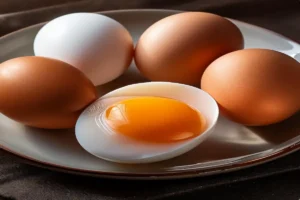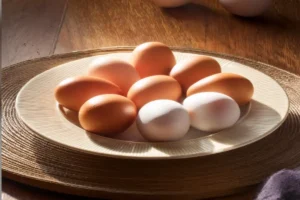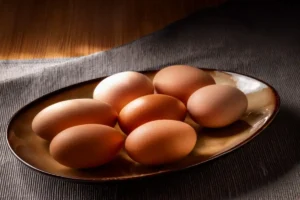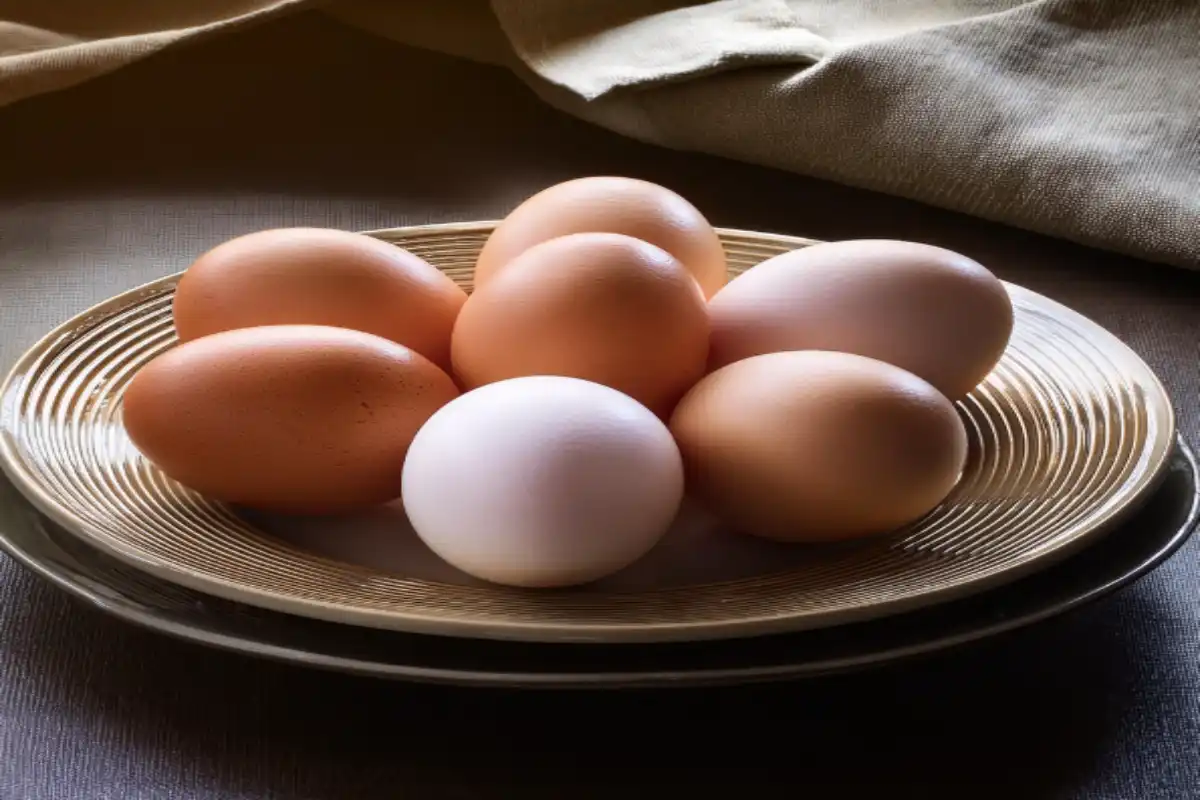Eggs are one of the most versatile ingredients in any kitchen. They can be scrambled for a quick breakfast, baked into desserts, or used as a binding agent in various dishes. With a dozen eggs on hand, you have nearly endless culinary possibilities. This guide will explore how to maximize the use of a dozen eggs, offering cooking techniques, creative recipes, and storage tips.
By the end of this article, you will have learned how to cook eggs in different ways, incorporate them into various dishes, and elevate your everyday meals. So, let’s dive into the incredible world of eggs and discover why they are a staple in kitchens around the globe.
Nutritional Value of Eggs
Eggs provide an excellent source of nutrition, containing essential vitamins, minerals, and high-quality protein. Each egg delivers about 70 calories, 6 grams of protein, and 5 grams of fat. Additionally, eggs supply significant amounts of vitamin A, D, E, and B12, which support various bodily functions. These include maintaining good eyesight, boosting the immune system, and promoting red blood cell formation.
Protein and Amino Acids
Eggs are a complete protein source, offering all nine essential amino acids. As a result, the body efficiently uses this protein for muscle repair and growth. Those who engage in regular physical activity will benefit from eggs’ high bioavailability, meaning the body absorbs and utilizes the protein more effectively than many other sources.
Vitamins and Minerals
Eggs are one of the few natural food sources of vitamin D, crucial for bone health and immune function. Furthermore, they supply iron, supporting oxygen transport in the blood, and selenium, a mineral that helps protect cells from damage. Including eggs in your diet provides these nutrients in a balanced and natural way.
Choline and Brain Health
Choline, a nutrient found in eggs, plays a significant role in brain health and development. It supports cognitive function and memory retention in adults while contributing to brain development in fetuses. By incorporating eggs into your diet, you can help ensure adequate choline intake, promoting long-term brain health.
Cooking Eggs: Techniques and Tips

Eggs can be prepared in various ways, each method enhancing their flavor and texture differently. Mastering these techniques allows you to create a wide range of dishes from a simple dozen eggs.
Boiling Eggs
Boiling eggs offers a straightforward method to enjoy them either as a snack or in salads and sandwiches. The cooking time determines whether the yolk remains runny or becomes fully set.
Soft-Boiled Eggs:
- Begin by bringing a pot of water to a gentle boil.
- Carefully lower the eggs into the water.
- Boil for 4-6 minutes, then transfer the eggs to an ice bath to stop the cooking process.
Hard-Boiled Eggs:
- Follow the same steps as for soft-boiled eggs, but boil for 9-12 minutes.
- Afterward, cool the eggs in an ice bath before peeling.
You can use boiled eggs in various ways. For example, slice them onto salads, mash them into egg salad, or enjoy them with a sprinkle of salt and pepper.
Scrambling Eggs
Scrambled eggs, a breakfast classic, can become even more flavorful with the right techniques and additions. The key to perfect scrambled eggs lies in cooking them over low heat to ensure a creamy texture.
Basic Scrambled Eggs:
- First, beat eggs in a bowl until they are well mixed.
- Then, melt butter in a skillet over medium-low heat.
- Pour the eggs into the skillet and stir gently with a spatula.
- Continue to cook, stirring occasionally, until the eggs set to your desired consistency.
Consider adding a splash of cream or milk to the eggs before cooking for a richer taste. Additionally, you can mix in ingredients like cheese, herbs, or vegetables to enhance the flavor.
Poaching Eggs
Poaching eggs requires a bit of practice, but the result is a delicate and satisfying dish. Perfect poached eggs have a fully set white and a runny yolk.
How to Poach an Egg:
- Fill a saucepan with water and bring it to a simmer.
- Add a splash of vinegar to help the egg whites set quickly.
- Crack an egg into a small bowl, and slide it gently into the simmering water.
- Cook for 3-4 minutes before removing the egg with a slotted spoon.
Poached eggs work wonderfully on toast, in salads, or as the centerpiece of dishes like Eggs Benedict. Furthermore, they can add a touch of elegance to any meal.
Creative Recipes for a Dozen Eggs

Having a dozen eggs means you can explore various creative recipes. These dishes make the most of eggs, showcasing their versatility and ability to complement other ingredients.
1. Frittata
A frittata serves as a versatile and quick dish, perfect for breakfast, lunch, or dinner. You can add almost any ingredient to a frittata, making it a great way to use leftovers.
Basic Frittata Recipe:
- Start by preheating the oven to 350°F (175°C).
- Sauté your choice of vegetables and meats in an oven-safe skillet.
- Next, whisk together 6-8 eggs with salt, pepper, and a splash of milk or cream.
- Pour the egg mixture over the sautéed ingredients.
- Cook on the stovetop until the edges begin to set, and then transfer the skillet to the oven.
- Bake for 10-15 minutes or until the eggs are fully cooked.
A frittata allows for endless customization, making it an ideal dish for experimenting with different flavor combinations. Moreover, it’s a dish that can be enjoyed at any time of day.
2. Quiche
Quiche, a classic French dish, combines eggs, cream, and various fillings baked in a pastry crust. It’s a perfect option for brunch or a light dinner.
Basic Quiche Recipe:
- First, preheat the oven to 375°F (190°C).
- Roll out a pie crust and fit it into a pie dish.
- Then, whisk together 4-6 eggs with 1 cup of cream, salt, and pepper.
- Add your choice of fillings, such as cheese, bacon, or vegetables.
- Pour the egg mixture into the crust and bake for 35-40 minutes or until the filling is set.
Quiche offers a rich, creamy texture and a variety of flavors depending on the fillings you choose. In addition, it’s a dish that impresses guests and satisfies a variety of palates.
3. Egg Muffins
Egg muffins provide a convenient, portable breakfast option. They can be prepared ahead of time and reheated for a quick, healthy meal.
Basic Egg Muffin Recipe:
- First, preheat the oven to 350°F (175°C) and grease a muffin tin.
- Whisk together 6-8 eggs with salt and pepper.
- Then, fill each muffin cup with diced vegetables, cooked meat, and cheese.
- Pour the egg mixture over the fillings and bake for 20-25 minutes, or until the eggs are set.
Egg muffins can be stored in the refrigerator for up to a week, making them perfect for meal prep. Additionally, they are customizable, allowing you to create different flavor combinations each time.
Storing and Handling Eggs
Properly storing and handling eggs ensures they remain fresh and safe to eat. Therefore, it’s essential to follow these guidelines to maintain the quality of your eggs.
Storing Fresh Eggs
Store eggs in the refrigerator at 40°F (4°C) or below to maintain their freshness. Keeping them in their original carton prevents them from absorbing strong odors from other foods. Also, place the eggs on an interior shelf rather than in the door to keep them at a consistent temperature.
Freezing Eggs
If you have more eggs than you can use before they expire, consider freezing them. First, crack the eggs into a bowl, beat them until mixed, and pour them into ice cube trays or a freezer-safe container. Eggs can be frozen for up to a year and used in cooking or baking later on.
Handling Eggs Safely
Always wash your hands after handling raw eggs to avoid cross-contamination. Additionally, crack eggs on a flat surface rather than the edge of a bowl to reduce the risk of shell fragments. When using raw or undercooked eggs in recipes, be cautious, especially if serving them to young children, pregnant women, or those with compromised immune systems.
Cultural Significance of Eggs
Eggs hold symbolic meaning in many cultures and religions, representing life, fertility, and renewal. Consequently, they have been an integral part of various traditions and rituals throughout history.
Eggs in Religion and Mythology
Eggs feature prominently in various religious and mythological traditions:
- Christianity: Eggs symbolize the resurrection of Christ and are a central part of Easter celebrations.
- Hinduism: The cosmic egg represents the universe’s creation in Hindu mythology.
- Ancient Egypt: Egyptians associated eggs with the sun god Ra and viewed them as a symbol of life and rebirth.
Eggs in Art and Literature
Eggs have also inspired numerous works of art and literature:
- Fabergé Eggs: These intricately designed eggs, created for Russian Tsars, are considered masterpieces of decorative art.
- Literature: In many literary works, eggs symbolize new beginnings or the fragility of life.
Pairing Eggs with Other Dishes

Eggs complement a wide range of dishes, enhancing their flavor and adding richness. Therefore, knowing how to pair them with other foods can elevate your culinary creations.
Breakfast Pairings
- Bacon and Eggs: A classic combination where the savory flavor of bacon enhances the richness of eggs.
- Toast and Eggs: Whether served as poached eggs on avocado toast or scrambled eggs on buttered toast, this pairing remains a breakfast staple.
- Pancakes and Eggs: A hearty breakfast often includes eggs alongside pancakes and syrup.
Dinner Pairings
- Steak and Eggs: A traditional pairing often enjoyed as a hearty brunch or dinner.
- Salads: Adding a poached or boiled egg to a salad provides extra protein and a satisfying texture.
- Pasta: Eggs are essential in dishes like carbonara, where they create a rich, creamy sauce.
Frequently Asked Questions (FAQs)
1. How can I tell if my eggs are still fresh?
To check the freshness of eggs, place them in a bowl of water. Fresh eggs will sink to the bottom, while older eggs may stand upright or float. Even if an egg floats, it could still be safe to eat, but crack it open and smell it first to ensure it’s not spoiled.
2. Can I use eggs past their “best before” date?
You can often use eggs a few weeks past their “best before” date if they’ve been stored properly. Perform the float test to check their freshness and use them in well-cooked dishes if you’re uncertain.
3. What is the difference between brown and white eggs?
The breed of the hen determines the color of an egg’s shell. Nutritionally, there’s no significant difference between brown and white eggs, and the choice usually comes down to personal preference.
4. How should I store leftover egg dishes?
Cool leftover egg dishes to room temperature before storing them in an airtight container in the refrigerator. These dishes usually last 3-4 days.
5. Are there any egg substitutes for baking?
Yes, several substitutes work well in baking, such as applesauce, mashed bananas, or a mixture of flaxseed and water, depending on the recipe.
6. What makes eggs essential in baking?
Eggs contribute structure, moisture, richness, and leavening to baked goods, making them an indispensable ingredient in many recipes.
Conclusion
Eggs are an incredibly versatile and nutritious food that plays a vital role in various dishes, from breakfast to dinner. Whether you’re making a simple scrambled egg or a more complex dish like quiche, having a dozen eggs on hand ensures you’re never far from a satisfying meal. By mastering different cooking techniques and exploring creative recipes, you’ll unlock the full potential of eggs in your kitchen.
For more information visit WIKIPEDIA

3 thoughts on “Eggs by the Dozen: The Ultimate Guide”